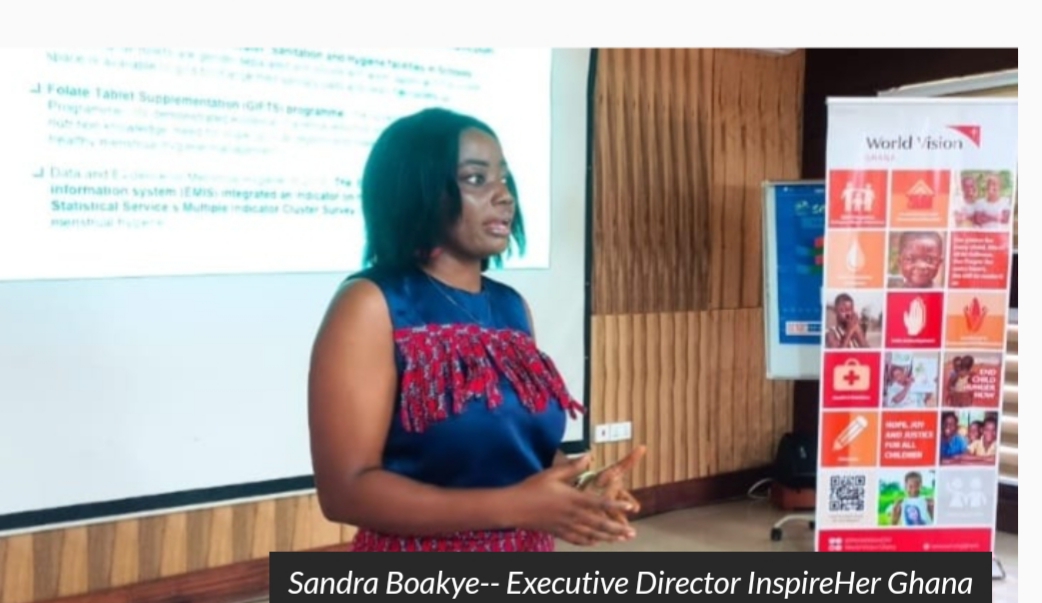A menstrual health expert has urged Ghana to introduce a comprehensive policy on menstrual health and hygiene to deal with menstrual health challenges faced by females in the country.
Sandra Boakye, Executive Director of Inspire Her, a female empowerment organization in Ghana, made this call on Thursday, adding that menstrual health is a critical factor in female and needs special attention.
Ms. Boakye made this call during a training of trainers’ workshop organized by World Vision Ghana, an international charity organization, in conjunction with the Ghana WASH Journalists Network (GWJN) and the Media Coalition Against Open Defaecation (M-CODe).
The menstrual hygiene expert added that many girls from low-income communities face challenges with the management of menstruation, but a comprehensive policy will ensure that there is both knowledge on management and support where the girls are in need.
In her presentation, Ms. Boakye noted that there were systemic factors that linked menstruation with health and wellbeing.
“Accurate and timely knowledge, available, safe, and affordable materials, informed and comfortable professionals, referral and access to health services, sanitation and washing facilities are some of these systemic factors,” she stated.
She added, “Positive social norms, safe and hygienic disposal, advocacy and policy, and having access to facilities to dispose of used menstrual management materials are also critical factors in overall menstrual health and hygiene.”
Ms Boakye noted that in many communities, girls faced period poverty, a term that describes the limited or inadequate access to menstrual products, menstrual health education, or clean and safe washrooms as a result of financial constraints or negative socio-cultural stigmas associated with menstruation.
The expert referred to statistics from the United Nations Children’s Fund (UNICEF), which indicates that 78 percent of girls in Ghana use sanitary pads, but 14 percent have to make do with cloth and rags, with just 60 percent of schools having improved and functional toilets.
Also, the statistics states that only 45 percent of schools provide adequate sanitation facilities for girls.
She, therefore, called for menstrual equity, a system which ensures that all individuals have equal and comprehensive access to menstrual products, menstrual health education, and facilities to manage their menstrual health with dignity and without economic, social, or cultural barriers.

Ms. Boakye pointed out that a national menstrual health policy would ensure that there is equitable access to all that females need to manage their menstrual health and hygiene safely and in dignity. She said the policy would also help to reduce misconceptions and stigma associated with menstruation, while empowering girls and women to fully participate in education and work, thereby boosting economic productivity and social inclusion.
In his opening remarks, the National Coordinator of GWJN Justice Adoboe emphasised that menstrual health issues were not responsibilities of females alone, but males as well, because all human beings were products of the menstrual cycle.
Available data from WaterAid Ghana suggests that 75 percent of girls in Ghana learn about menstruation before their first period, yet 40 percent feel uncomfortable discussing it with their mothers added the expert.

